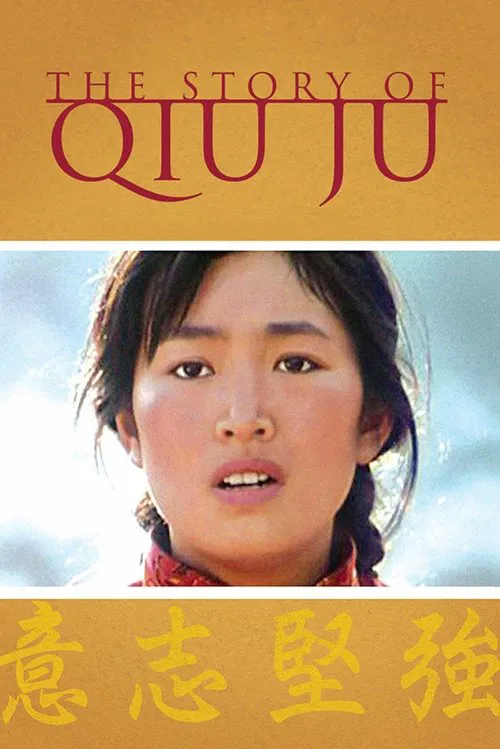The Story of Qiu Ju

Plot
The Story of Qiu Ju is a 1992 Chinese drama film directed by Zhang Yimou, known for his lyrical and visually stunning cinematography. Set in rural China during the 1980s, the film is a poignant portrayal of a woman's unwavering determination to uphold her rights, in a male-dominated society where women are often relegated to the background. The film revolves around Qiu Ju, a simple peasant woman, played by Gong Li, who lives with her husband, Yang, in a small village. Despite the challenges of rural living, Qiu Ju and Yang are happy, with Qiu Ju expecting their second child. However, their idyllic life is disrupted when Yang suffers a vicious attack in the marketplace, courtesy of the village head, Wang Pei, who accuses Yang of speaking out of turn and kicks him repeatedly in the groin. As a result, Yang is bedridden, unable to work, and unable to provide for his family. Qiu Ju takes matters into her own hands and embarks on a perilous journey to the next town, where she encounters a variety of bureaucratic red tape and corruption. At each step, Qiu Ju faces resistance and hostility from officials, who seem more concerned with preserving their own power and status than in delivering justice to her husband. Qiu Ju's determination is tested to the limit as she battles against the odds. Despite her vulnerability and the fact that she is pregnant, she shows remarkable strength and resilience, refusing to give up even when faced with outright opposition from the authorities. Along the way, she meets a number of characters, each of whom offers a different perspective on the struggle for justice in rural China. One of the most compelling aspects of The Story of Qiu Ju is its exploration of the intricate social dynamics at play in rural China. The village is depicted as a hierarchical society, where the village head and other officials wield significant power and influence. Women, in particular, are expected to defer to their male relatives and are often seen as secondary citizens. Through Qiu Ju's story, Zhang Yimou offers a searing critique of this patriarchal society, highlighting the ways in which women are marginalized and denied a voice. Qiu Ju's determination to stand up for her rights and fight for justice is all the more remarkable in this context, and her struggle serves as a powerful metaphor for the struggles of women everywhere to assert their independence and autonomy. Visually, the film is a stunning achievement, with Zhang Yimou's cinematography capturing the beauty and complexity of rural life in China. The film's use of color is particularly noteworthy, with the muted tones and earthy colors of the village contrasting with the vibrant hues of the city. The camera work is also noteworthy, with a focus on long takes and sweeping landscapes that add to the film's sense of grandeur and scope. The performances in the film are also excellent, with Gong Li delivering a tour-de-force performance as Qiu Ju. Her portrayal of the titular character is both nuanced and powerful, capturing the character's vulnerabilities and strengths with equal conviction. The supporting cast is also noteworthy, with a variety of memorable performances from actors such as Lü Liping and He Lian. In conclusion, The Story of Qiu Ju is a powerful and moving portrait of a woman's struggle for justice in rural China. With its vivid characters, stunning cinematography, and thought-provoking themes, the film is a must-see for anyone interested in Chinese cinema or the experiences of women in a patriarchal society.
Reviews
Recommendations




